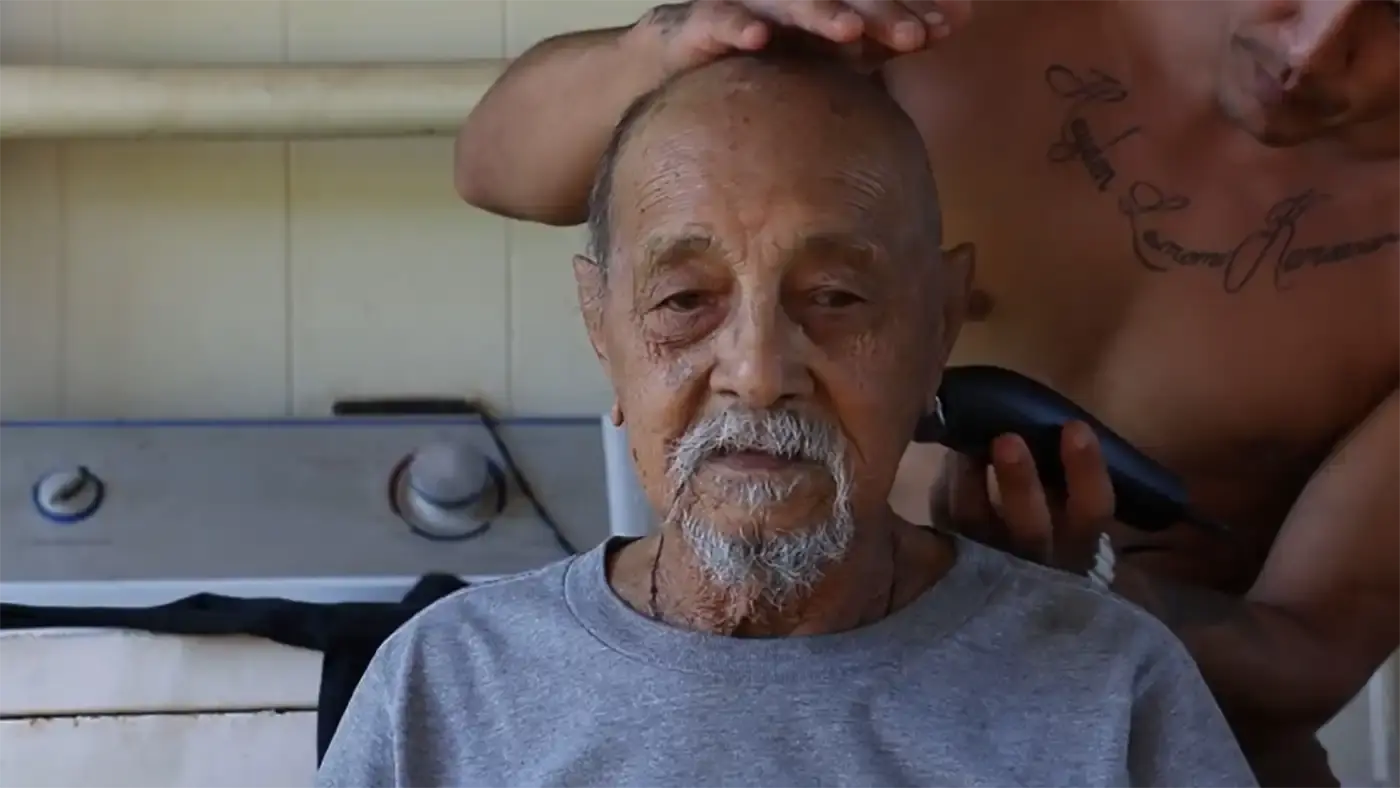
Film Review: Cane Fire
Film Reviews
Cane Fire
Director: Anthony Banua-Simon
Cinema Guild
In Theaters: 05.23
Now Streaming
Cane Fire will screen again at Broadway Centre Cinemas on Tuesday, May 23 at 7 p.m. Find tickets here.
Fruit tarts, sweet bread, decadent cakes from a local polynesian bakery and even Puteni, a traditional Tongan, steamed custard served with pieces of spice cake, all lined the main lobby wall at Broadway Centre Cinemas. A red carpet welcomed guests to the 3rd annual Māsima: Pacific Islands Film Tour, which opened with Cane Fire, a documentary that details Kauai’s history through the lens of its filmmaker Anthony Banua-Simon’s own family and their experience from when the first colonizers arrived in the 1800s to today. Banua-Simon’s insightful and emotional documentary shows the unique history and ongoing battle to preserve Indigenous identity in one of the most sought after places in the world.
Cane Fire opens as most stories of colonization begin: They came for the resources. In the case of Kauai, it was the sugar cane and shortly after the pineapple. Cane Fire dives head first into how plantations influenced Kauai’s economic development in the 1800s. In fact, the title refers to an early 1900s silent film by Lois Weber (that has since been lost) about an act of passion on a plantation that results in the burning down of a sugar cane field.
Considering the cultural and political context into which it was released, Weber’s Cane Fire was deemed “immoral” for fears of an actual revolt on the plantation, and it never saw the light of day. Banua-Simon’s Cane Fire carries that same heart of revolt the lost film once had, revealing through generations that the same fight for land ownership, sovereignty and preservation of culture continues.
Cane Fire tells its story from the perspective of its locals; the real people who lived through generations of oppression. Henry, Banua-Simon’s great uncle, generously shares with us his experience working as a young man on the plantation, chronicling those businesses’ demise and the rise of the tourist industry. We see first hand how each era of exploitation left the original inhabitants reeling from the pillaging of their beloved and sacred land, from the plantation era and the eventual rise of the union, the expansion of the film industry, the rise of tourism and, finally, the housing crisis.
Cane Fire presents each era as a cycle of reclamation: the initial exploitation of people, land and resources and then consequent revolt. It suggests that this cycle continues today, as many of the locals living on Kauai struggle to make ends meet with such an imbalanced economical distribution, leaving the rich richer and the poor poorer.
The film’s attention to detail makes Cane Fire a strong documentary, however, so much of the history is presented in such a short amount of time that you can’t help but feel a bit overwhelmed and scattered. The film is incredibly insightful and poignant, but the jarring shifts in tone made it difficult to follow a theme. Banua-Simon’s grasp on the history is impressive, and you can feel his passion beaming from the screen, evoking emotion and inspiring change in a way everyone can appreciate. Whether you’re an Indigenous Hawaiian or plan on visiting the Hawaiian islands, Cane Fire is also a sharp reminder that when visiting Hawaii, you’re on Indigenous land and should respect the people and their culture that have graced this land for many, many generations.
Cane Fire will be showing one last time as part of the Māsima: Pacific Islands Film Tour on Tuesday, May 23 at 7 p.m. –PJ
Check out more film reviews:
Film Review: Black Orpheus
Film Review: Consecration
